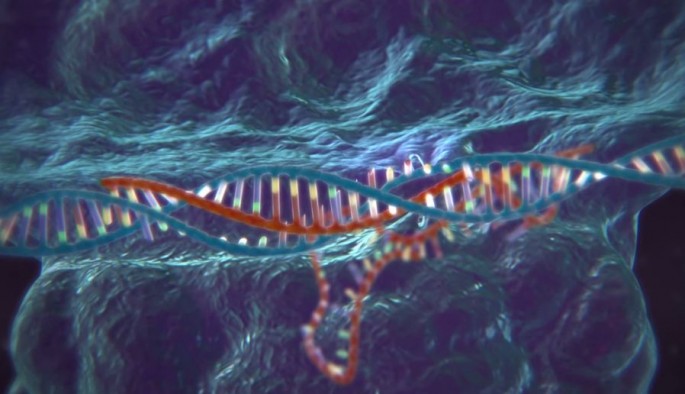Defying a worldwide appeal by the scientific community, Chinese scientists have gone ahead and announced the world's first procedure using the controversial technique called "CRISPR/Cas9", a new gene editing technique that could lead to the creation of "designer babies" on a large scale.
This is the first time in history a team of researchers has successfully edited the genes of a human embryo.
The admission by Junjiu Huang of Sun Yat-sen University in Guangzhou that his team had used the CRISPR/Cas9 technique to modify the gene responsible for β-thalassaemia, a fatal blood disorder, confirmed rumors first heard in March that Chinese researchers had successfully edited the genomes of human embryos and for the first time altered human DNA.
These first disturbing rumors said an unknown group had altered the "germ line", or the genetic information that comes together to form something new when eggs and sperm unite.
CRISPR/Cas9 is so scientifically simple, cheap and powerful it's widely seen as a promising key to treating serious genetic diseases and AIDS and many cancers.
CRISPR/Cas9 is a bacteria-derived system that uses RNA molecules that recognize specific human DNA sequences. The RNAs act as guides, matching the nuclease to corresponding locations in the human genome.
The Chinese team said they didn't establish a pregnancy and did their tests only in abnormal embryos for ethical reasons. But by using genes at the earliest stage of human development, they came dangerously close to carrying out a procedure that can make sure all the subsequent copies of the gene are the superior version.
Some scientists, however, weren't concerned the Chinese had opened the door to creating "made-to-order" human beings with superior mental and physical attributes. They described the Chinese experiment as an exciting first step, but nothing more.
The Chinese were also very cautious about their findings, and emphasized the technique is far from ready. Huang said that if scientists want to do it in normal embryos, they need have close to a 100 percent success rate.
"That's why we stopped. We still think it's too immature", said Huang.
He reported his team injected 86 abnormal embryos and waited 48 hours. This was enough time for the CRISPR/Cas9 system and the molecules that replace the missing DNA to act, and for the embryos to grow to about eight cells each.
Of the 71 embryos that survived, 54 were genetically tested. The test showed that just 28 embryos were successfully spliced, but only a fraction of these contained the replacement genetic material.
"These authors did a very good job pointing out the challenges," said Dieter Egli, a researcher at the New York Stem Cell Foundation in Manhattan. "They say themselves this type of technology is not ready for any kind of application."
"I believe this is the first report of CRISPR/Cas9 applied to human pre-implantation embryos and as such the study is a landmark, as well as a cautionary tale," said George Daley, a stem-cell biologist at Harvard Medical School.
"Their study should be a stern warning to any practitioner who thinks the technology is ready for testing to eradicate disease genes", he told Nature.
Only this March, two groups of eminent scientists called for a worldwide ban on the use of CRISPR/Cas9.
Scientists from the International Society for Stem Cell Research (ISSCR) called for a worldwide moratorium on the use of "CRISPR/Cas9" that could alter human DNA across generations. They fear the technique might be used in unsafe or unethical ways.
Nobel Laureates David Baltimore of the California Institute of Technology and Paul Berg of Stanford University and 16 other medical experts have banded together to issue a warning against CRISPR/Cas9.
The petitioners urged a worldwide moratorium on using gene editing methods to genetically engineer the human genome in a way that can be inherited.
They warned "scientists should avoid even attempting, in lax jurisdictions, germline genome modification for clinical application in humans" until the full implications "are discussed among scientific and governmental organizations".
Another group of scientists also called for a ban on the technique in the journal, Nature.
This group said "genome editing in human embryos using current technologies could have unpredictable effects on future generations. This makes it dangerous and ethically unacceptable. Such research could be exploited for non-therapeutic modifications. We are concerned that a public outcry about such an ethical breach could hinder a promising area of therapeutic development, namely making genetic changes that cannot be inherited."
This group is led by Edward Lanphier, chairman of the Alliance for Regenerative Medicine in Washington, DC, and also consists of Fyodor Urnov, Sarah Ehlen Haecker, Michael Werner and Joanna Smolenski.
Thy further argue that at "this early stage, scientists should agree not to modify the DNA of human reproductive cells. Should a truly compelling case ever arise for the therapeutic benefit of germline modification, we encourage an open discussion around the appropriate course of action".
A video explaining CRISPR/Cas9 can be viewed here.



























